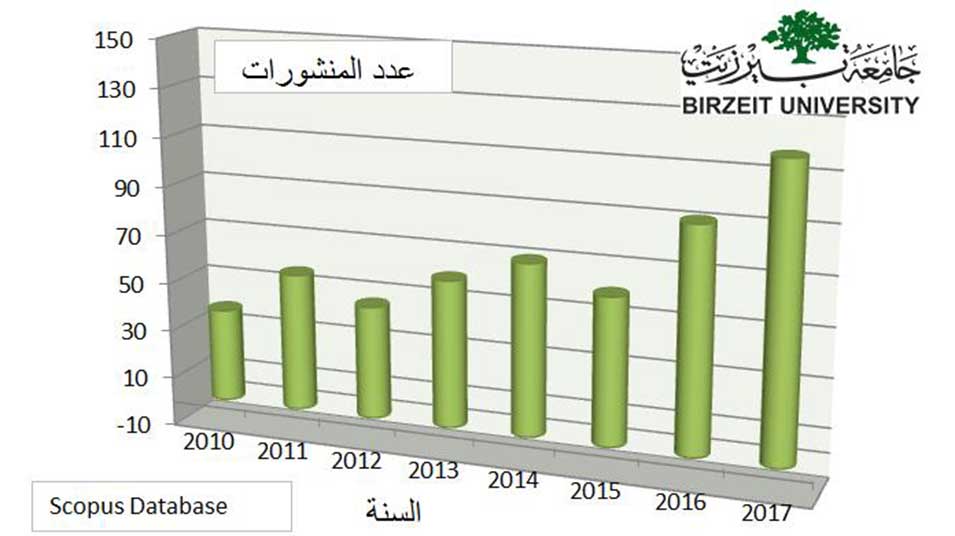BZU publications surge in quality and quantity according to international databases
Data released by the Scopus international database show a large increase in the amount of research published by Birzeit University, reaching 118 research papers in well-known scientific journals in 2017, an increase of 28% from 2016, and double the number of papers published in 2015.
The Scopus database is the biggest international platform for published research papers, as it covers more than 23,000 scientific periodicals and tens of thousands of periodic and aperiodic publications released by the largest publishing companies. Scopus is also the database adopted by most global university rankings.
Researchers from the various faculties, institutes, and centers in the university contributed to the steady publication of research papers and studies. Chief among them were researchers from the Faculty of Engineering and Technology; the Faculty of Science; and the Institute of Community and Public Health.
The number of Birzeit University publications in the Scopus database, at the end of 2017, amounted to 1117 published research papers, which were cited 19,992 times, at a rate of 17.9 citations per paper. The university’s publications scored 58 on the h-index – an index that measures the output and citation impact of the publications of an author or a researcher.
Birzeit University’s citations-per-paper ratio rivals that of universities in the Global North countries and places the university well ahead of Palestinian and Arab universities, which score a citations-per-paper ratio of 4.4 to 10.9, while Palestine scores 8.6 on the same index, according to SCImago Journal Rank.
According to the databases, the vast majority of the university’s publications appear in scientific journals as research papers, while the rest is divided among papers presented in well-known international conferences; papers constituting chapters of research volumes; or literature reviews and research conclusions. Many of the university’s publications are the result of joint effort and cooperation between Birzeit-based researchers and their peers in local, Arab, and international universities.







